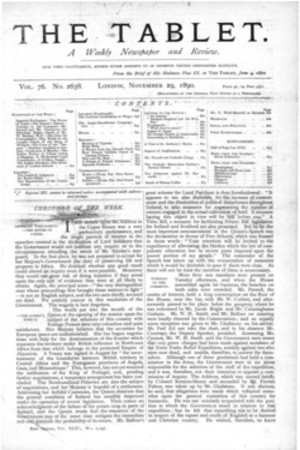08/11/2014
Curiosité
Dans l’édition de 1878 du fameux guide Baedeker on trouve, à la fin du chapitre 16, consacré au Cimetière du Père Lachaise, un bref récit des massacres de la Roquette et de la Rue Haxo :
« La prison de la Roquette a été le théâtre de l’un des crimes les plus abominables des communards, en 1871. Dans la soirée du 24 mai, Ferré, le « délégué à la sûreté » et le soi-disant préfet de police, qui avait le matin même mis le feu à la Préfecture (p. 224), se présenta à la prison, et annonça l’intention de la Commune d’user de représailles pour la mort de six des siens tués par les troupes, en faisant fusiller six des otages détenus dans cette prison. Les victimes choisies furent Mgr. Darboy, le vénérable archevêque de Paris:, le président Bonjean, l’abbé Allard, le père Ducoudray, supérieur de l’école Ste-Geneviève ; le père Clerc et l’abbé Deguerry, curé de la Madeleine. Ces hommes, entièrement innocents et inoffensifs, furent grossièrement insultés par les gardes nationaux et conduits dans le préau, en face de l’infirmerie de la prison, où ils furent immédiatement fusillés. Les 26 et 27 mai, 87 personnes emprisonnées à la Roquette sous différents prétextes y furent également fusillées, et la nuit du 26, 28 gendarmes en furent extraits et conduits au Père-Lachaise, où ils partagèrent le même sort. Dans l’après-midi du 27, Ferré mit en liberté tous les condamnés que renfermait la prison et leur fit donner des armes. Alors commença un massacre général de ceux qui avaient été emprisonnées par la Commune, parmi lesquels périrent de nouveau 70 gendarmes. L’approche des troupes mit heureusement fin à ces massacres. » (p. 203)
In Paris et ses environs avec les principaux itinéraires entre les pays limitrophes de la France et Paris : manuel du voyageur (5e éd. revue et augmentée), par Karl Baedeker, Leipzig, K. Baedeker, 1878, 1 vol. (XXII-363-22 p.) : 2 cartes, 9 plans ; in-16.
Disponible sur Gallica : identifiant : ark:/12148/bpt6k5401593n
18:20 Publié dans Biographie, Commune de 1871 | Lien permanent | Commentaires (0)
Ch. Daniel's book review
Voici une recension parue dans la revue The Catholic World (New York) de la traduction du livre du Père Charles Daniel, sj. Cela montre, s'il en était besoin, l'écho qu'ont eu à l'étranger les drames de la Commune et, plus précisément, le martyr du Père Alexis Clerc, dont toute la vie fut, depuis sa conversion jusqu'à sa mort héroïque, exemplaire.
Review
LIFE OF FATHER ALEXIS CLERC, S.J., SAILOR AND MARTYR. By Rev. Father Charles Daniel, S.J. New York : D. & J. Sadlier & Co. 1880.
We have read through this life of Father Clerc and have found it most interesting and edifying. It depicts the career of a man of our own day who had to contend with the most adverse influences, but who, being faithful to the inspirations of divine grace, overcame them all and obtained at last the martyr's crown.
Father Clerc reached the age of thirteen under the influence of a devoted and pious mother, but the religious impressions derived from her were soon smothered by the infidelity and hatred of religion prevailing in the state schools, to which he was sent by his father. After graduating at the Polytechnic he chose a career in the navy. For a little while he led a rather reckless life, like the rest of the midshipmen with whom he was thrown, but the sight of the heroism and self-sacrificing life of some French missionaries to the Gambier Islands in the South Seas aroused him to more noble thoughts, and then, after a long and difficult struggle of some years between these and the evil influence of former habits and irreligious companions, he finally emancipated himself from the slavery of vice and devoted himself henceforth to the service of God with his whole heart. He found his happiness in the exact performance of his duty as an officer, in studying the works of St. Thomas, and in the exercise of much prayer and communion with God. His piety was not sour or morose ; on the contrary, he appears to have been uniformly cheerful, and with a playful, innocent humor which made him a universal favorite with his associates in the navy. In this way he was the means of many conversions, and several of his companions, like himself, renounced their worldly prospects to devote themselves to a religious life.
The grace of God kept leading Father Clerc higher and higher, until, after ripe and mature deliberation, he came to the irrevocable determination to quit the navy and join the Society of Jesus. Then he practised for some years the virtues of humility and obedience in a way to edify all his companions, though hidden from the eyes of the world. God, as a reward for his faithfulness, selected him for martyrdom. He was shot, in company with the Archbishop of Paris and other eminent ecclesiastics, by the Communists in their rage when the city of Paris was taken from them. One cannot peruse this life without being strongly moved to follow Father Clerc's example. Father Daniel has faithfully collected the incidents of his life, many of his letters and the testimonies of the friends who knew and loved him, and has thus given us a most interesting biography which will well repay any one who will read it.
THE CATHOLIC WORLD.
A Monthly Magazine of General Literature and Science
Vol. XXXII. October, 1880, to March, 1881,
(pp. 719-720)
New York: The Catholic Publication Society Co., 9 Barclay Street, 1881.
Copyright, 1880, by I. T. HECKER.
Source:
https://archive.org/stream/catholicworld32pauluoft#page/n3/mode/2up
16:03 Publié dans Actualités, Bibliographie | Lien permanent | Commentaires (0)
Recension d'une biographie en anglais
Nous vous proposons ici une recension du livre de Lady Mary Elizabeth HERBERT consacré au Père Alexis Clerc et publiée à Londres, en 1890, sous le titre suivant : A Martyr from the Quater Deck.
Cette recension est parue dans le journal anglais The Tablet, dans le numéro du 29 novembre 1890.
The Tablet
Page 14-15, 29th November 1890
A MARTYR FROM THE QUARTER DECK.[*]
LADY HERBERT'S busy pen has contributed to Father Coleridge's Quarterly Series a touching and edifying volume entitled as above. The Christian hero of this tragic narrative is Alexis Clerc, a converted agnostic of our own day, and the merit of this book is its special suitableness to these "dangerous times" in which we live. Its pages set forth, not the theory, but a brilliant example of conversion of heart from the agnosticism which is now making such havoc among this generation. The life of Alexis may be divided into three periods, (1) his wandering from God into unbelief, (2) his happy return to God and His holy laws, (3) his subsequent years as a layman and a priest, until, in 1871, he gloriously died a victim of expiation.
Alexis was formed by his mother to faith and purity. In his childhood he loved to read the lives of the saints, to whose imitation he aspired. But his good mother's influence was counteracted by the evil influence of his free-thinking father, who sent him at an early age to an infidel school in Paris. There the Catholic instincts imbibed from his mother were soon stifled by inhaling the poisonous atmosphere of a hotbed of infidelity. But though his mind was perverted by agnostic philosophy, yet he never fell so far down the abyss of evil as to fly from God with secret aversion and madness, which is the case with so many infidels of our day. Yet for many years Alexis "sat in darkness and in the shadow of death," leading a life of vanity illusion, and pride, measuring good and evil, not by the light of truth, but by the, cravings of passion. While thus alienated from God, a religious book fell into his hands which raised a suspicion in his unhappy soul that perhaps after all there was a deadly poison hidden in the cup of pleasure which he was drinking. The suspicion aroused the powers of his soul, which had not found in earthly enjoyment the rest and happiness that he had sought.
He thereupon betook himself to the serious study of Christianity, analysing its doctrines and examining its traditions, which resulted in his intellectual conviction of the truth of revelation. For a time his will held back from embracing Christianity, which he was content to regard as a grand abstraction. But little by little the light of grace streamed into his soul. He began to understand God's goodness, power, and majesty, and the madness of daring to violate His divine laws. His will was then moved to repentance and compunction of heart, and the miracle of his conversion was complete—a conversion which was specially remarkable for its thoroughness. For not satisfied with publicly glorying in his faith, in spite of the jeers and ridicule of his shipmates, he made it henceforth his chief study to reduce to practice the gospel teaching of our Lord, Whom he now acknowledged as his only Master. To this practice heattained in an eminent degree by prayer, penance, and the study of divine things, which he found time for in the midst of his life in the navy. His favourite study, even when a layman, was the Summa of St. Thomas, by which he trained his mind and conscience and raised himself to a high standard of Christian perfection. He thus became an instrument God's hands for the conversion of many of his comrades on the quarter-deck.
Having gone up the ladder of perfection step by step he at length renounced, not only the spirit of the world, but the world. itself by entering the Society (4 Jesus and becoming a priest, and his saintly life won for him from the King of Martyrs the privilege of a martyr's crown. We will not dwell on the exciting story of his martyrdom in the midst of the atrocities ot the Paris Commune. We will merely mention that during his cruel imprisonment at Mazas he was sustained in his solitude and sufferings, as the martyrs were of old, by the possession of the Blessed Sacrament and the Holy Scriptures. For by a pious stratagem the Blessed Sacrament was brought to him in prison, and he bore It on his breast as a living altar. So great was the transport of his inward joy at possessing our Lord with him that he said to a friend Who went to see him: "I am no longer solitary in my cell, for my Lord and my God has come to share it with me. It is not only in thought that I can draw near to Him, but in very deed and in truth. He is come corporally to console His poor prisoner. He wills to keep me company." His friends also at his entreaty brought him a copy of the Holy Scriptures, which gave him such comfort that he was heard to say that with the Bible he had enough to nourish his soul during all the time he should remain in prison, even were he to die of old age.
In concluding. this hasty notice we strongly recommend our readers to read the martyr's life, for we feel sure that they could find nothing that would better serve as a Christmas faggot to kindle in their souls the fire which burns so languidly in these latter days when faith is extinguished in many souls, and the charity of so many has grown cold.
Source:
http://archive.thetablet.co.uk/page/29th-november-1890/14
http://archive.thetablet.co.uk/page/29th-november-1890/15
15:50 Publié dans Actualités, Biographie | Lien permanent | Commentaires (0)






